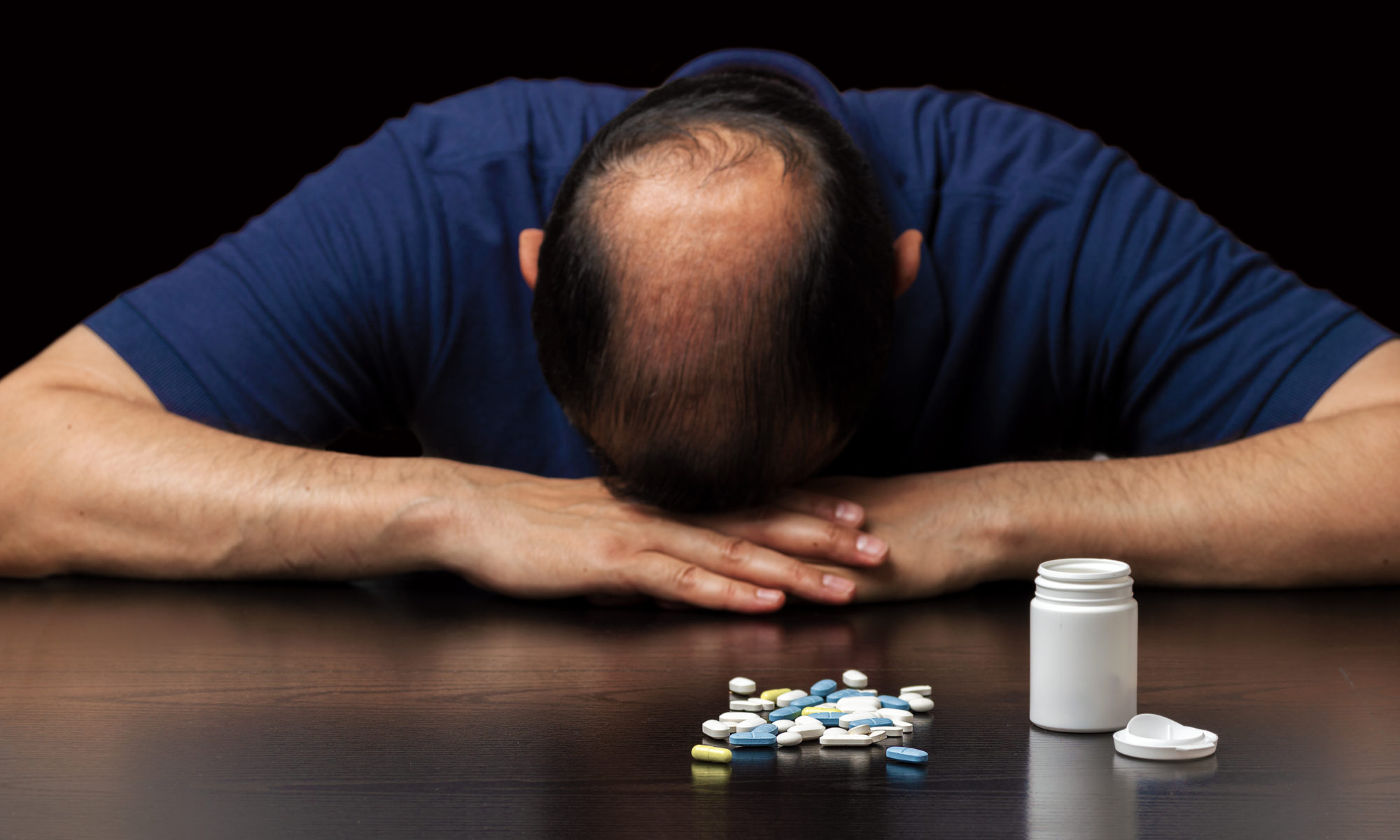Attending a Denver Intensive Outpatient Program
Intensive outpatient programs or IOPs are a way for mental health treatment centers to bridge the gap between inpatient and outpatient facilities. An inpatient facility allows patients to stay there for an extended period to deal with their problems. These facilities limit the number of external stimuli that a patient has to deal with, so they can focus on their recovery. Because of this focused recovery approach, inpatient treatment tends to have more success and less chance of a relapse. Inpatient treatment isn’t for everyone, unfortunately. The type of treatment usually requires a person to leave their job or take an extended leave of absence.
The other side of the treatment scale is outpatient treatment. This type of treatment offers more freedom to the patient than inpatient treatment. With outpatient treatment, the patient must show up at a scheduled time to receive counseling and attend group therapy sessions. They don’t stay at the facility, and the onus is on them to make it to their scheduled counseling. Outpatient counseling has the downside that a person still has to deal with their environment and other influences that could lead them to relapse. IOP programs seek to find a middle ground between these two treatment options.
What Is an Intensive Outpatient Program Or IOP?
Intensive outpatient treatment is a treatment program for substance use disorder. It’s a step-down treatment after detox and inpatient treatment. Typically, it lasts for weeks, with visits scheduled for a few days out of the week. IOP can serve as either the primary treatment after detox or a continuing treatment method after a person has completed residential treatment. IOPs are built to be flexible and offer patients the best option for visiting a treatment center within their schedule. Most patients are trying to cope with re-entering the world and holding down a job. An IOP gives them the support they need through therapy while not infringing on their lives.
IOP sessions vary in length, but typically they last between two and four hours long. Most facilities that offer IOPs try to limit them to at least three days a week. More intensive programs might provide additional time, but three days are standard. One of the core focuses of IOP treatment is preventing relapse from external stimuli. Much of the discussion might be around managing the triggers that could lead to relapse and how to cope with those forces. Interpersonal relationships might need to be re-examined to give the person a better chance at staying away from those that might encourage unacceptable behavior.
What Does an IOP Treat?
While IOPs can be used for treating addiction, they can also be applied to an extensive range of mental health conditions. Among the typical cases in that IOP may be used are:
- Dual Diagnosis (mental health symptoms alongside addiction)
- Personality disorders
- Mood disorders
- Trauma and PTSD
- Anxiety and stress disorders
- Alcohol abuse or addiction
- Drug abuse or addiction
Typical Features of a Quality Intensive Outpatient Program
Not all IOP programs are the same. Some are far better at dealing with disorders than others through their flexibility and how they approach the issue of addiction or mental health disorders. The ideal IOP should feature:
Education Services
Recovering from any disorder requires understanding it fundamentally. A top-class IOP should incorporate education into its regimen. Part of the treatment should discuss how drug and alcohol addiction affects the body and the mind. Relapse prevention starts with recognizing the effects of cravings and how they change a person’s behavior. Intensive outpatient sessions should address practical ways of avoiding relapse.
Psychotherapy

Psychotherapy is one of the accepted methods of treating substance use disorder and mental health over the long term. A good IOP will incorporate family, group, and individual therapy to help recovering people deal with their conditions. Sharing experiences with others, opening up to family, or addressing the direct effects of a person’s mental health issue positively affects their ability to maintain their recovery.
Support Services
Typically, a person is in pretty rough shape financially, legally, and in employment when they enter rehab. The best IOP programs have advisors who can help people recover their financial and social standing while motivating them to continue their treatment. Finding solutions to these problems can help people focus more on improving themselves.
Who Can Benefit from a Denver IOP Program?
Anyone who has had a mental disorder or is dealing with long-term recovery from substance use disorder can benefit from joining an IOP. The IOP is an alternative to inpatient treatment while offering many benefits to outpatient therapy. IOPs do have an ideal candidate for success. A person who wants to undertake IOP needs to fit these criteria:
- The patient must have completed inpatient treatment or have a mild enough substance use disorder that they don’t need acute treatment.
- The patient must have a moderate substance abuse disorder.
- They must not be dependent on drugs or alcohol.
- They must have a means of support outside of the treatment center since they don’t live there.
- The patient must be able to get to and from the facility independently.
- They should be able to commit a significant amount of time to their recovery.
A recovery center would look at a patient’s history and determine whether they fit the ideal patient model before suggesting that they start IOP. Not all patients will match the perfect model of a patient. Since recovery depends on the individual, each person will have their own road to recovery. IOP can help some patients that don’t meet the ideal criteria but are willing to work towards their recovery.
Are IOP Programs in Denver Covered by Insurance?

Insurance companies are required to cover treatment for mental health disorders. The Affordable Care Act (ACA) requires that all public, private, and group plans offer coverage for mental health treatment. IOP is another type of treatment that can help individuals who suffer from mental health disorders.
Therefore, IOP programs in Denver are covered by health insurance to a particular degree. Consulting with the facility will help you better understand whether your insurance will cover your IOP and to what amount. You may be responsible for meeting some part of the financial responsibility for your treatment, even with insurance.
Medication-Assisted Treatment and IOP Participation
Medication-Assisted Treatment or MAT uses medication alongside therapy to gain results in treating substance use disorder and mental health issues. Evidence from many studies suggests that this might be a viable way of helping some individuals cope with their mental health or substance use problems.
Results have shown that individuals who might otherwise be struggling with recovery have a much better outcome when incorporating MAT into their treatment. The use of MAT has historically been part of many inpatient and residential treatment programs. Introducing it to IOP requires adapting the existing methodology to the intensive program.
IOPs that incorporate MAT offer significant benefits over IOPs that use standard therapy as their go-to approach for treatment. Generally, patients who don’t have acute issues with substance usage are the best candidates for MAT. These patients benefit from being treated in their home environments for their disorders, allowing them a better chance of recovery. MAT raises that chance further by providing them with a way to manage their cravings through medication. Combining therapy with group support through IOP gives a recovering person the social support they need to recover from their disorder completely.
What Are the Features Of Top IOP Programs In Denver?
IOPs are quickly becoming popular because they combine the best of good treatment models. However, not all IOPs are helpful to every individual. The top IOPs in Denver share some similarities, however. Among the traits they display are:
- Mental Health Disorder Assessment: Determine what mental health disorders the patients are dealing with.
- Therapy Sessions: Group, individual, and family therapy should all form part of the treatment regimen.
- Behavioral Health Assessment: How does this mental health disorder affect the person’s behavior?
- Life Education Skills and Training: A recovering person will have to relearn many basic life skills a person needs when living independently.
- Teaching Focus Development: Yoga and meditation help balance a patient and get them focused on their recovery.
If you are looking at an IOP and aren’t sure whether it’s right for you, you should objectively examine what it offers. You should be able to get to the location relatively quickly, so you don’t miss appointments. The staff should be welcoming and understanding about your goals. It should also offer you an individual solution to your problem, not a generic fix.
Find Lasting Sober Success with Best Rehabs In Arizonas Now
Best Rehabs In Arizona Recovery provides treatment to our patients with a view to long-term recovery. Our two decades of service have prepared us to deal with all types of mental and substance use disorders. Our staff is trained in helping recovering persons come to terms with their disorders and overcome them. Let us help you deal with your condition. Call us today, and we’ll guide you towards leaving your disorder behind and living your life anew!








 some people, but I was determined to not go back to that pattern. I needed to be alone for a while to fix myself so that I didn’t need to go right back to couples therapy when I began a new relationship. This was a huge thing for me to realize.
some people, but I was determined to not go back to that pattern. I needed to be alone for a while to fix myself so that I didn’t need to go right back to couples therapy when I began a new relationship. This was a huge thing for me to realize.



















